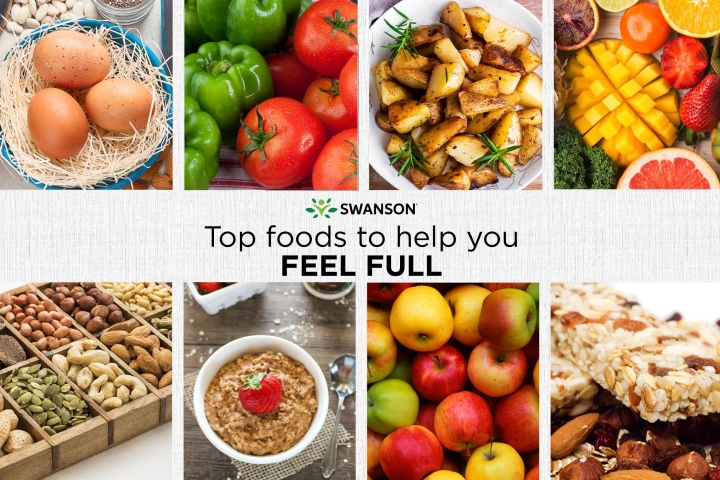Mediterranean Diet Trend Benefits Research & How to Try It
The Mediterranean Diet: Benefits and the Science Behind It
Health fads come and go, but there are a few time-tested trends that always seem to stick around or reappear year after year.
The Mediterranean diet is one such trend. It has been around for ages, yet it’s topping our newsfeeds after being ranked #1 in the Best Diets Overall category by U.S. News & World Report.
Experts agree that an emphasis on fresh, whole foods and healthy fats make the Mediterranean diet a winner, and this is one trend we fully support.
Let’s explore why the Mediterranean diet is so beneficial, how to adopt it, and the research supporting the trend.
What is the Mediterranean Diet?
When you think of the Mediterranean diet, what comes to mind? If you’re imagining grilled fish, fruits and veggies, olive oil, and red wine, then you’re on the right track!
But there’s much more to get excited about, including herbs, spices, whole grains, and endless flavor combinations that make this diet just as appealing to your taste buds as it is for your health.
By definition, the Mediterranean diet is a way of eating based on the traditional foods and recipes most often enjoyed in countries along the Mediterranean Sea, including Italy.1
Italy is also said to be home to some of the healthiest people in the world, a fact that is primarily attributed to their diet.2
The Mediterranean diet is the gold standard for fresh, clean eating, and following it involves emphasizing plant-based foods, making healthier swaps (like replacing butter with olive oil) and enhancing your foods with more herbs and spices instead of salt.
Here’s a quick overview of how to follow the Mediterranean diet.1
How to Follow the Mediterranean Diet
- Focus your daily diet on plant-based foods like fresh fruits and veggies, whole grains, legumes, nuts and seeds
- Replace butter or margarine with extra virgin olive oil, which is rich in omega-9 fatty acids
- Use more herbs and spices and rely less on salt for flavor
- Limit your intake of red meat to a few times a month, and obtain your protein from other sources instead, including fish and poultry at least twice a week, and include more plant-based protein sources
- Drink plenty of water to stay hydrated
- Optional: Enjoy red wine in moderation. It’s a rich source of heart-healthy antioxidants, including resveratrol.3
The Mediterranean diet also incorporates dairy in moderation, including cheese and yogurt (particularly Greek yogurt, which is higher in protein and probiotics than most other types of yogurt).
But don’t overlook two other very important components of the Mediterranean diet and lifestyle: exercise and healthy relationships.
Relationships in the Mediterranean Diet
What do relationships have to do with staying healthy? As it turns out, quite a lot! Studies have shown that healthy relationships are linked to reduced stress, better immune health, and increased longevity.3
Sitting down to enjoy a delicious, healthy meal with friends and family is a big part of the Mediterranean lifestyle and a great way to strengthen your relationships.
Exercise in the Mediterranean Diet
And of course, you can’t overlook exercise: a key component of every healthy lifestyle! Find ways to incorporate more activity into your daily routine.
Whether that’s fitting in more walks, incorporating mini-workouts, joining a fitness class, or finding other activities that inspire you to move more.
Why is the Mediterranean Diet Healthy?
The Mediterranean diet is considered the healthiest diet in the world due to its emphasis on fresh, nutritious real foods that are packed with vitamins, minerals, healthy fats (including heart-healthy omega-3 fatty acids) and antioxidant compounds that contribute to significant health benefits.
It’s a stark contrast to the typical North American diet, which tends to be much higher in saturated fat, added sugars, and high volumes of sodium, despite clear guidelines issued by the US Department of Agriculture.4
Moreover, most of us consume less than the recommended amounts of veggies, fruits, whole grains, dairy products, and healthy fats.4
The diverse nutrition provided by the Mediterranean diet can benefit us all, and the science is here to prove it. Here’s a look at some studies conducted on the benefits of the Mediterranean diet.
What Does Science Say About the Mediterranean Diet?
Heart Health: Numerous studies associate the Mediterranean diet with heart health. Research shows that while using olive oil may play a significant role, it's far from the only factor in the benefits of a diverse Mediterranean diet.5
Weight Management: The Mediterranean diet is often viewed as a way to eat healthier overall. It isn’t typically considered a weight loss diet, but studies have reported it may have a more positive impact on weight compared to other types of diets. One of those studies involved 322 individuals and demonstrated more weight loss for participants on a calorie-restricted Mediterranean diet than those on calorie-restricted, low-fat diets or even unrestricted low-carb diets.6
Metabolic Health: At the end of a 2½-year study involving 180 people with metabolic health concerns, significant improvements were noted among participants on a Mediterranean diet.6
Cognitive Health: Following the Mediterranean diet has been associated with better cognitive health and cognitive performance in adults.7,8 Further research is needed on the brain-boosting potential of the Mediterranean diet overall, but the cognitive-supporting benefits of essential fatty acids found in fish, a staple protein of the Mediterranean diet, have long been linked to optimal brain health.9
Mediterranean Diet Tips
Ready to try the Mediterranean diet? Get started by stocking up on some of these fresh picks. Since the Mediterranean diet focuses heavily on fresh, real foods, try to plan most of your meals for the week in advance to avoid waste.
- Fresh vegetables: tomatoes, broccoli, spinach, carrots, kale, onions or even cauliflower. Choose your favorites and switch it up weekly
- Fresh fruits: lemons, limes, oranges, apples, grapes, figs/dates and your favorite berries
- Whole grains: brown rice, whole oats, bulgur, corn, whole wheat and whole-wheat bread
- Nuts & seeds: almonds, cashews, sunflower seeds, pumpkin seeds, walnuts and grain-like quinoa. Yes, quinoa is a seed! But its grain-like qualities make it an excellent side dish.
- Herbs & spices: rosemary, thyme, sage, garlic, mint, cinnamon, peppercorns
- Legumes: chickpeas, cannellini beans, green peas, lima beans, lentils
- Seafood & fish: salmon, shrimp, clams, crab, sea bass, trout or any other type of fish you prefer
- Poultry proteins: eggs, chicken, turkey, duck
- Dairy products: Greek yogurt, cheese
- Healthy fat sources: olives and extra virgin olive oil, avocado oil and fresh avocados
Real Food Nutrition
We couldn’t be happier with the real-foods focus of the Mediterranean diet. Everyone can benefit from incorporating more nutritious, whole foods into their daily diets, and filling in any remaining nutritional gaps with supplements made from real food sources.
Enjoyed this article? Don't forget to sign up for BubbForest Health emails to get expert wellness advice and our best promotions delivered to your inbox.
About Lindsey Toth, MS, RD
Registered Dietitian, BubbForest Health Products
Lindsey is a nationally recognized registered dietitian and nutritionist with a soft spot for pie. She




Leave a comment